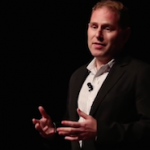A recent @NYTimesWell post, Teaching Doctors the Art of Negotiation, by Dhruv Khullar (@DhruvKhullar), a dual degree candidate at Yale School of Medicine and Harvard Kennedy School, is a call to further arms on this specific communication skill so few receive formal training in–especially in medicin
A recent @NYTimesWell post, Teaching Doctors the Art of Negotiation, by Dhruv Khullar (@DhruvKhullar), a dual degree candidate at Yale School of Medicine and Harvard Kennedy School, is a call to further arms on this specific communication skill so few receive formal training in–especially in medicine. Yet almost every day in a health providers’ life contains interactions with patients, colleagues and administrators that are opportunities to negotiate for better–adherence, outcomes, resources and systems’ improvements. He writes:
The medical profession is no longer one in which doctors dictate a given treatment course to patients, who are then expected to follow it. Rather, clinicians and patients deliberate about treatment options, weigh costs and benefits together, and determine the best course of action. This approach requires eliciting patient concerns and addressing underlying fears to arrive at the most effective strategy for maximizing health and well-being.
 While medical schools have acknowledged the need to expand training around communication, training in negotiation specifically remains far from mainstream. One place the acquisition of this communication skill can be obtained is the Telluride Patient Safety Summer Camps, where Paul Levy (@PaulfLevy) has joined the faculty the past two years, to teach a session on Negotiation to the health science student and resident physicians scholars. Levy, along with co-author, Farzana Mohamed, who recently published How to Negotiate Your First Job…, have led a favorite workshop by many attendees who have the opportunity to pick up what has traditionally been considered a business skill, though still not often taught to sales professionals in the real world.
While medical schools have acknowledged the need to expand training around communication, training in negotiation specifically remains far from mainstream. One place the acquisition of this communication skill can be obtained is the Telluride Patient Safety Summer Camps, where Paul Levy (@PaulfLevy) has joined the faculty the past two years, to teach a session on Negotiation to the health science student and resident physicians scholars. Levy, along with co-author, Farzana Mohamed, who recently published How to Negotiate Your First Job…, have led a favorite workshop by many attendees who have the opportunity to pick up what has traditionally been considered a business skill, though still not often taught to sales professionals in the real world.
As healthcare resources become ever more scarce, and the need to move from individual to systems’ thinking ever greater, so too does the need to influence the related necessary change. The ability to negotiate win-win outcomes are at the heart of Levy’s Telluride training session. Stereotypical sales scenarios where the polyester-suited fast talker takes advantage of the less armored victim is far from what it means to participate in a balanced negotiation, a discussion where one another’s BATNA (Best Alternative To A Negotiated Agreement) is the foundation for both parties being made more greatly whole by the final agreement. An almost zen-like approach to deal making, the single session sends Telluride alumni home with a tangible skill they can apply immediately–in “real” life and in healthcare.
As Khullar writes in the @NYTimes post mentioned:
Negotiation, in this context, is not about winning or losing, or haggling over price or scare resources. It’s about exploring underlying interests and positions to bring parties together in a constructive way. It’s about creative, innovative thinking to create lasting value and forge strong professional relationships. It’s about investigating what is behind positions that may seem irrational at first to understand the problem behind the problem.






